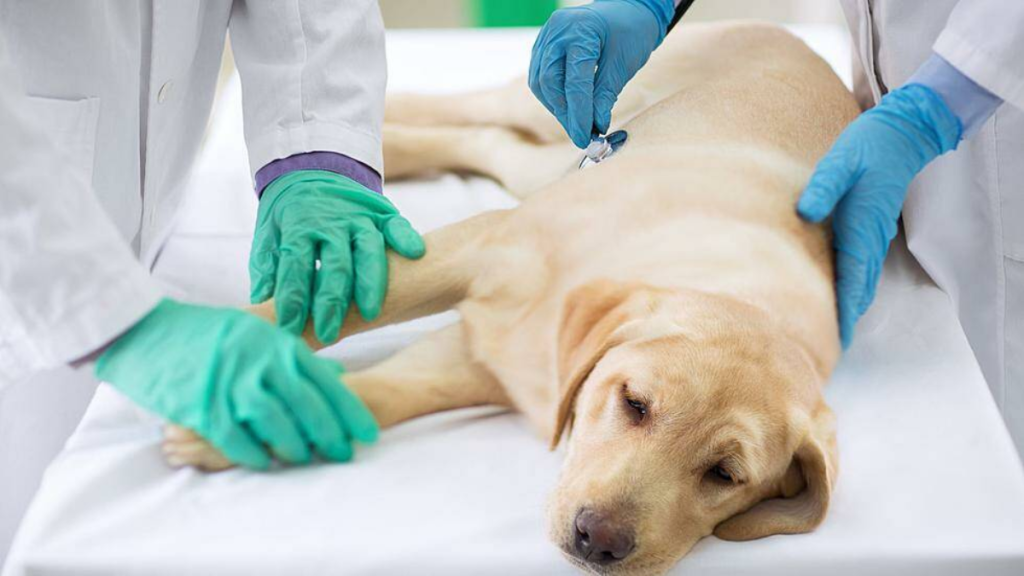Table of Contents
Introduction:
Welcome to the world of responsible pet ownership! As a pet parent, you want the best for your furry friend, and that includes their health and well-being. One essential aspect of caring for your puppy is ensuring they have adequate insurance coverage. In this guide, we will explore the importance of puppy insurance and provide you with valuable insights to help you make informed decisions about your pup’s healthcare.
Understanding Puppy Insurance Basics

Puppies are full of boundless energy and curiosity, but accidents and illnesses can happen when we least expect them. Puppy insurance serves as a financial safety net by providing coverage for veterinary expenses. It typically includes a range of options such as accident coverage, illness coverage, and wellness care. By understanding the basics of puppy insurance, you can make a well-informed choice for your furry companion’s health needs.
Benefits of Puppy Insurance

- Financial protection for unexpected veterinary costs: Just like humans, puppies can require emergency medical attention. From broken bones to ingesting harmful substances, accidents can occur at any time. Puppy insurance provides financial support, covering a significant portion of the veterinary expenses, so you can focus on your pup’s well-being without worrying about the high costs.
- Coverage for accidents and injuries: Whether it’s a playful mishap at the park or a sudden collision, accidents happen. Puppy insurance ensures that your pup receives the necessary medical care, including diagnostic tests, surgeries, and medications, so they can recover swiftly and get back to wagging their tail.
- Coverage for illnesses and diseases: Puppies are vulnerable to various illnesses and diseases, including common conditions like infections, allergies, and gastrointestinal issues. With puppy insurance, you can seek prompt veterinary attention and receive reimbursement for treatments, medications, and hospitalization, ensuring your pup’s swift recovery.
- Peace of mind for pet owners: Knowing that your pup is protected by insurance can bring immense peace of mind. You can make decisions based on your pup’s healthcare needs, rather than worrying about the financial implications. Puppy insurance allows you to provide the best possible care for your furry friend, without compromising on their well-being.
Also Read: Secure Your Pup: Low-Cost Puppy Insurance
How Puppy Insurance Works

- Understanding how puppy insurance works is essential to make the most of your coverage. Here are some key aspects to consider:
- Enrollment process and eligibility requirements: To enroll your pup, you’ll typically need to provide basic information about their breed, age, and health history. Most insurance providers have age restrictions and may require a veterinary examination to ensure your pup is in good health before coverage begins.
- Waiting periods and coverage start dates: Puppy insurance often comes with waiting periods, which are specific durations from the policy start date during which certain conditions are not covered. Understanding these waiting periods helps you plan for your pup’s healthcare needs accordingly.
- Deductibles, copayments, and reimbursement rates: Insurance plans usually involve deductibles, which is the amount you must pay out of pocket before coverage kicks in. Additionally, copayments or coinsurance may be required for certain treatments or services. Reimbursement rates determine the percentage of eligible expenses you’ll receive back from the insurance company.
- Claim submission and processing: When your pup receives veterinary care, you’ll need to submit a claim to the insurance company. This process typically involves providing the necessary documentation, such as veterinary invoices and medical records. Familiarize yourself with the claim submission process to ensure smooth reimbursement.
Types of Coverage

- Puppy insurance offers various types of coverage to address your pup’s unique healthcare needs. Understanding these coverage options helps you select a plan that aligns with your pup’s requirements. Here are some common coverage types:
- Accident-only coverage: This coverage focuses specifically on accidents, providing financial protection for injuries resulting from unexpected accidents, such as broken bones, lacerations, or ingestion of harmful substances.
- Illness coverage: Illnesses can strike at any time, and this coverage ensures that your pup is covered for diagnostic tests, treatments, and medications related to common illnesses like infections, allergies, or respiratory conditions.
- Wellness and preventative care coverage: Keeping your pup healthy involves regular check-ups, vaccinations, and preventive treatments. Wellness coverage helps offset the costs of routine care, including vaccinations, annual exams, flea and tick prevention, and dental cleanings.
- Hereditary and congenital condition coverage: Certain dog breeds are prone to specific hereditary or congenital conditions. This coverage addresses expenses related to such conditions, providing financial assistance for diagnostic tests, treatments, and specialized care.
- Alternative therapy coverage: Some insurance plans may offer coverage for alternative therapies such as acupuncture, chiropractic care, or physical therapy. These therapies can complement traditional veterinary treatments and contribute to your pup’s overall well-being.
Also Read: Give Your Puppy a Head Start: 6 Weeks of Free Insurance
Exclusions and Limitations

- While puppy insurance provides valuable coverage, it’s important to understand the limitations and exclusions that may apply. Here are some factors to be aware of:
- Pre-existing conditions: Most insurance plans do not cover pre-existing conditions, which are illnesses or injuries that exist or show symptoms before the policy’s start date. It’s crucial to review the policy details to understand what is considered a pre-existing condition.
- Breed-specific exclusions: Certain breeds may have specific health issues associated with them. Some insurance providers may exclude coverage for these breed-specific conditions, so it’s essential to consider this when choosing a plan.
- Age restrictions: Insurance companies often have age restrictions for enrolling puppies. It’s important to check the policy’s age requirements to ensure eligibility for coverage.
- Waiting periods for certain conditions: Waiting periods are specific time frames after the policy’s start date during which coverage for certain conditions may not be applicable. Understanding these waiting periods helps you plan for any potential health concerns your pup may have.
- Coverage limitations for routine and elective procedures: Insurance plans may have limitations on coverage for routine or elective procedures such as spaying or neutering, dental cleanings, or grooming. Be sure to review the policy to understand what is included and excluded.
Factors to Consider When Choosing a Puppy Insurance Plan
- When selecting a puppy insurance plan, several factors should be taken into account:
- Monthly premiums and deductible options: Compare the monthly premiums and deductible options offered by different insurance providers. Finding a balance between affordable premiums and a reasonable deductible ensures you can comfortably manage your pup’s healthcare costs.
- Maximum benefit limits and annual caps: Insurance plans often have maximum benefit limits, which are the maximum amount the policy will reimburse for eligible expenses. Additionally, some plans may have annual caps, limiting the total reimbursement amount per year. Consider your pup’s potential healthcare needs and choose a plan with adequate benefit limits.
- Coverage for chronic conditions and ongoing treatments: If your pup has a pre-existing chronic condition or requires ongoing treatments, ensure the insurance plan covers these specific needs. Review the policy details regarding coverage for long-term or chronic conditions.
- Network of veterinary providers: Check if the insurance provider has a network of veterinary providers or if you have the freedom to choose any licensed veterinarian. Consider the convenience of accessing in-network providers and the flexibility of choosing a trusted veterinarian.
- Customer reviews and satisfaction ratings: Research the reputation of insurance providers by reading customer reviews and satisfaction ratings. This can give you insights into the company’s customer service, claims process, and overall customer satisfaction.
Also, Read: Low-Cost Pet Insurance for Multiple Pets: How to Protect Your Furry Friends without Breaking the Bank
Frequently Asked Questions about Puppy Insurance

What is the ideal age to get puppy insurance?
Determining the ideal age to get puppy insurance depends on the insurance provider. Some companies offer coverage for puppies as young as 8 weeks old, while others may have a minimum age requirement of 12 weeks or older. It’s best to inquire with the insurance provider about their specific age eligibility criteria.
Can I get coverage for my older dog?
Yes, many insurance providers offer coverage for dogs of various ages, including older dogs. However, some providers may have age restrictions or limitations for enrolling senior dogs. It’s important to check with the insurance company to determine if coverage is available for your older pup.
Is dental care covered under puppy insurance?
Dental care coverage can vary among insurance plans. Some plans may include dental treatments, while others may offer it as an optional add-on or have separate dental coverage plans. Be sure to review the policy details to understand the extent of dental coverage and any associated limitations.
Can I use any veterinarian with my puppy insurance?
Insurance providers typically allow policyholders to choose any licensed veterinarian for their pup’s care. However, certain plans may have a preferred network of providers, and visiting in-network veterinarians may offer additional benefits or cost savings. It’s advisable to check if there are any restrictions or preferences regarding veterinary providers.
What should I do if my puppy has a pre-existing condition?
Most insurance plans do not cover pre-existing conditions, which are health issues that exist before the policy’s start date. If your puppy has a pre-existing condition, it’s important to disclose it during the enrollment process. The insurance provider will review the condition and determine its eligibility for coverage. Be sure to review the policy details and consult with the insurance company for guidance on managing pre-existing conditions.
Tips for Making the Most of Your Puppy Insurance

To maximize the benefits of your puppy insurance, consider the following tips:
- Read and understand your policy documents: Take the time to thoroughly read and understand the terms and conditions of your insurance policy. Familiarize yourself with coverage details, exclusions, waiting periods, and claim submission processes.
- Keep all veterinary records organized: Maintain a comprehensive record of your pup’s medical history, including vaccinations, treatments, and procedures. Having organized records makes the claim submission process smoother and ensures accurate reimbursement.
- Schedule regular wellness check-ups: Prevention is key to your pup’s health. Schedule routine wellness check-ups with your veterinarian to monitor their overall well-being and detect any potential health issues early on. Many insurance plans include coverage for wellness visits, vaccinations, and preventive care.
- Familiarize yourself with the claim submission process: Understand how to submit claims and the required documentation. Keep copies of all relevant invoices, receipts, and medical records. Promptly submit claims to ensure timely reimbursement.
- Review your coverage annually: As your pup grows and their healthcare needs change, it’s important to review your insurance coverage annually. Assess if the current plan still meets your pup’s requirements and consider any necessary adjustments or upgrades.
Alternatives to Puppy Insurance

While puppy insurance provides comprehensive coverage, there are alternative options to consider:
- Self-funding: Some pet owners choose to set aside savings specifically for their pup’s healthcare needs. This approach requires disciplined financial planning to ensure funds are readily available when needed.
- Pet savings accounts: Several financial institutions offer specialized savings accounts for pet expenses. These accounts allow you to set aside funds specifically for veterinary care, providing a dedicated source of funds for your pup’s healthcare needs.
- Care credit or medical credit cards: Care credit or medical credit cards are specifically designed to cover medical expenses, including veterinary care. These cards often offer promotional financing options or low-interest rates to help manage unexpected veterinary costs.
- Pet health discount programs: Pet health discount programs provide discounted rates for veterinary services and products to help mitigate the costs of your pup’s healthcare. These programs operate similarly to membership-based discount clubs and can provide savings on various services, including examinations, medications, and surgeries.
Case Studies: Real-Life Examples of Puppy Insurance in Action

Examining real-life scenarios can provide insights into the value of puppy insurance. Here are three case studies highlighting different situations:
Case Study 1: Accidental Injury and emergency surgery
- Description of the case: A puppy sustains a serious leg injury while playing at the dog park, requiring immediate surgery.
- Explanation of how insurance coverage helped: The puppy’s owner had insurance coverage that included accident protection. The insurance company covered a significant portion of the surgical expenses, ensuring the pup received timely medical care without causing financial strain on the owner.
Case Study 2: Chronic Illness and long-term treatment
- Description of the case: A young pup is diagnosed with a chronic condition that requires ongoing treatments, medications, and regular check-ups.
- Explanation of how insurance coverage helped: The owner had a comprehensive insurance plan that covered chronic conditions. The insurance company reimbursed a portion of the treatment costs, providing financial relief and allowing the pup to receive the necessary care without compromise.
Case study 3: Breed-specific health conditions
- Description of the case: A certain breed is prone to specific health issues, such as hip dysplasia or heart conditions.
- Explanation of how insurance coverage helped: The owner chose an insurance plan that specifically covered breed-specific conditions. When the pup developed one of these conditions, the insurance company provided coverage for diagnostic tests, specialized treatments, and ongoing care, ensuring the best possible health outcomes for the pup.
Conclusion:
In conclusion, puppy insurance is a vital tool for responsible pet ownership, offering financial protection, coverage for accidents and illnesses, and peace of mind for pet owners. By understanding the basics of puppy insurance, considering different coverage options, and being aware of exclusions and limitations, you can make an informed decision that meets your pup’s specific healthcare needs.
Remember to carefully review policy documents, keep veterinary records organized, schedule regular wellness check-ups, and familiarize yourself with the claim submission process. Additionally, consider alternatives to puppy insurance such as self-funding, pet savings accounts, care credit, or pet health discount programs.
Ultimately, the goal is to provide the best possible care for your furry companion, and puppy insurance plays a crucial role in safeguarding their health and well-being. By being proactive and informed, you can protect your pup and ensure they receive the medical attention they deserve throughout their life. So, embrace the responsibility of pet ownership, invest in puppy insurance, and embark on a journey filled with love, companionship, and a lifetime of wagging tails.
I’m Sanjay, a digital marketing professional with 12+ years of experience. I’m also a part-time blogger who writes about various topics. My blog provides practical advice and insights for readers interested in these areas. I’m passionate about sharing my knowledge and always looking for new ways to engage my audience. In my free time, I love traveling and immersing myself in new cultures.

